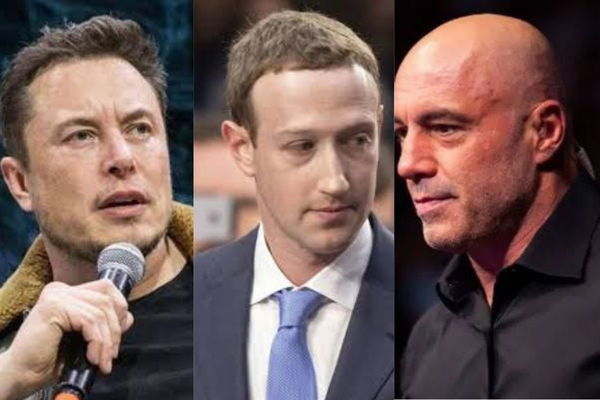

Silicon Valley is witnessing a significant shift in social media policies, led by Meta CEO Mark Zuckerberg. The tech mogul has recently expanded his persona, delving into MMA and even bringing UFC CEO Dana White onto Meta’s board. In his latest bold move, Zuckerberg announced that Facebook and Instagram would replace third-party fact-checking with a ‘Community Notes’ style system, seemingly inspired by Elon Musk’s transformation of X.
While some hail this as a win for free speech, others caution it could lead to increased misinformation. Despite the controversy, Zuckerberg remains unapologetic about challenging censorship norms and fostering a more open discourse. During an appearance on The Joe Rogan Experience #2255, Zuckerberg reflected on the evolution of Meta’s content moderation practices over the past decade.
“Well yeah, look, going back to the beginning, or like I was saying, I think you start one of these if you care about giving people a voice. You know I wasn’t too deep on our content policies for the first 10 years of the company. It was just kind of well-known across the company that we were trying to give people the ability to share as much as possible. And issues would come up, like practical issues—so if someone is getting bullied, for example.”
ADVERTISEMENT
Article continues below this ad

via Imago
Bilder des Tages Mark Zuckerberg, chief executive officer and founder of Facebook Inc. attends the Viva Tech start-up and technology gathering on May 24, 2018, in Paris, France. PUBLICATIONxINxGERxSUIxAUTxONLY Copyright: xChristophexMorinx
Reflecting on the platform’s progression, Zuckerberg acknowledged that, as time passed and user demands for security and privacy rights grew, Meta made adjustments to meet those expectations. However, he noted that the concept of censorship took a dramatic shift when the push for “ideological censorship” gained momentum.
Zuckerberg went on to claim that the Biden administration exerted pressure on Facebook to censor content, particularly during the COVID era. However, Zuckerberg’s outlook has changed with the 2024 election, as he feels things are starting to look up with Donald Trump’s return to the White House.
ADVERTISEMENT
Article continues below this ad
Meta CEO addresses his renewed efforts on censorship
In a recent press conference, President-elect Donald Trump offered his praise for Mark Zuckerberg and Meta’s bold new direction, commending the company for “coming a long way” and describing their shift away from third-party fact-checking as a step towards more responsible information distribution. While fact-checking programs aim to curb misinformation, they often face accusations of bias, leading to skepticism about their fairness and effectiveness.
Zuckerberg addressed this concern directly in a video post, stating: “After Trump first got elected in 2016, the legacy media wrote nonstop about how misinformation was a threat to democracy. We tried in good faith to address those concerns without becoming the arbiters of truth, but the fact-checkers have just been too politically biased and have destroyed more trust than they’ve created, especially in the US.”
What’s your perspective on:
Is Zuckerberg's new approach a win for free speech or a gateway to misinformation chaos?
Have an interesting take?
In line with Zuckerberg’s new approach, Elon Musk gave his brief yet approving take on the move, simply tweeting, “This is cool.” While Zuckerberg, Trump, and Musk seem aligned in their vision for a more open, less censored internet, Zuckerberg didn’t shy away from acknowledging the complex challenges of content moderation.
ADVERTISEMENT
Article continues below this ad
In the same video, he remarked, “The US has the strongest constitutional protections for free expression in the world. Europe has an ever-increasing number of laws institutionalizing censorship and making it difficult to build anything innovative there. Latin American countries have secret courts that can order companies to quietly take things down.”
Will this new approach restore trust and foster innovation, or will it open the floodgates for misinformation? Let us know your views in the comments below!
Have something to say?
Let the world know your perspective.
ADVERTISEMENT
ADVERTISEMENT
ADVERTISEMENT

Debate
Is Zuckerberg's new approach a win for free speech or a gateway to misinformation chaos?